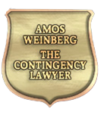Under well established New York law, monies paid to an employee, or a salesperson, that exceed commissions earned, do not have to be paid back unless the court finds that there existed an agreement to repay the excess monies. (Boutique Industries v Sobel, 223 A.D.2d 398 [1996]). It does not matter that the payments were called a drawing account. (Posner v. Precision Shapes, Inc., 271 A.D. 435, 439 [1946]) or a drawing account to be charged against commissions earned. (Pease Piano Co. v. Taylor, 197 A.D. 468, 470-471 [1921]). It does not matter that the payments were called advance commissions or advance payments. (Wolfsheimer v. Frankel, 130 A.D. 853, 856-857 [1909]). It does not matter that they were advances against future commissions. (Royal Distributors Co. v. Friedman, 141 N.Y.S.2d 786 [1955]). It does not matter that there were unearned commissions. (Design Strategy, Inc. v. Davis, 469 F.3d 284, 304 [2006]).
It does not matter that it was agreed that the employer could reduce the drawing account if there was not earned sufficient commissions to cover. (Pease Piano Co.)
An agreement to repay draws against unearned commissions must exist in order to get back any draw or advance paid. (Centerbank Mortg. Co. v. Shapiro, 237 A.D.2d 477 [1997]).




